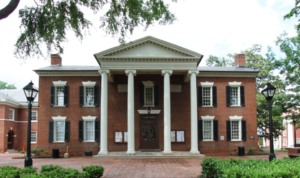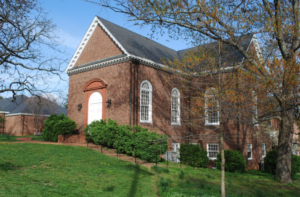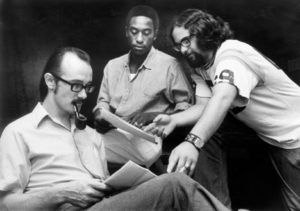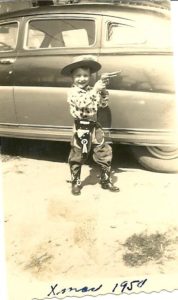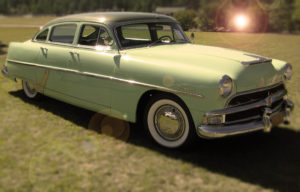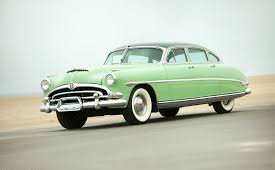The Smart Key
Now that I’m pushing seventy, everyone is intent on reminding me that the mind slows and the memory dims as we grow older. I don’t buy it. My mind is still as sharp as it was when I was a lawyer and an executive. There’s been no slippage whatsoever.
Except for an occasional insignificant absent-mindedness related to operating my car. On the theory that you can’t be too careful, I figured I better take decisive action to nip that stuff in the bud before it spreads, so I developed three simple rules we baby boomers can use to guard against automotive forgetfulness.
 Rule 1: When backing the car out of the garage, it is extremely important to open the garage door first. I can’t stress enough how profoundly consequential this rule is. Get off on the wrong foot here, and there’s no getting back on track for the rest of the day. Moreover, a thoughtless mistake can inflict serious damage both to the garage door and to the car, $2,533.44 to be exact.
Rule 1: When backing the car out of the garage, it is extremely important to open the garage door first. I can’t stress enough how profoundly consequential this rule is. Get off on the wrong foot here, and there’s no getting back on track for the rest of the day. Moreover, a thoughtless mistake can inflict serious damage both to the garage door and to the car, $2,533.44 to be exact.
Best practice: When you fire up the engine and shift into reverse, look in the rear view mirror. If you see a big wall of metal, don’t pop the clutch.
Rule 2: Always put the Smart Key in your pocket before you leave home in the car. Those of you lucky enough to still be driving a 1954 Hudson Hornet are probably unfamiliar with the Smart Key. The car companies came up with this bright idea a few years ago. Pushing the starter button will start the car only if the car senses the presence of the Smart Key. Nobody can steal your car without it, including you.
Despite its many advantages, the Smart Key presents a dangerous pitfall. Case in point: you and your wife both have a Smart Key. She keeps hers in her purse, which she carries with her at all times, but you keep yours in your pocket, which means you have to remember to put it in there. You forget to put the Smart Key in your pocket one morning when you drive her to the shopping mall. You drop off her and her purse with the engine running. The car will keep running when her Smart Key disappears until you cut off the ignition, so you drive on to the barbershop, failing to notice (because you don’t wear your reading glasses while driving, like any sane person) the warning that popped up on the monitor when your wife left the car: “Smart Key Not Found.”
This is the only warning you will receive. There is no pinging, ding-donging, or buzzing, and don’t think you can count on the condescending British lady, who lives in the GPS thing in your dashboard, to say a word about this. She’ll scold you mercilessly when you veer off her sacred charted course because of road construction, but when she could tell you something that might actually help you, she spitefully keeps mum.
So you drive to the barbershop and park the car and cut off the engine. When you return, you push the starter button and the car won’t start. “Smart Key Not Found.”
An added complexity is that this frequently happens when your cell phone is dead because you forgot to charge it the night before. This forces you to go to a store to ask to borrow a phone, which usually means you have to explain everything to a greatly amused store clerk younger than your granddaughter. By the way, don’t tell the kid you forgot your Smart Key because you were rattled about backing your car through your garage door. This will merely inspire more humiliating snickers.
When you finally get your hands on a phone, it’s imperative that you NOT call your wife on her cell phone and ask her to come over and help you. Such a request will likely provoke an insensitive response, such as: “How am I supposed to get there, Einstein? You’ve got the car.” A heated back and forth may then ensue, royally screwing up yet again the ever-fragile state of marital bliss.
Best practice: Call a cab to take you to your wife. When you find her, tell her you don’t know what happened to the Smart Key. Maybe a pick-pocket stole it while you were
in the barber shop. Borrow her Smart Key and take the cab back to your car.
Rule 3: If you park your car in a multilevel downtown LA parking lot, do not exit the building until you write down on a piece of paper the floor level and space number where you parked. If you don’t have paper, write it on your hand. Failing to follow this simple rule almost always results in returning to the lot to discover that your car is not where you remember parking it. If this happens to you, do NOT call 911. Rather, follow the steps below.
First, try to determine if you are in the right parking lot. Most of these structures look the same. Could be your car is in the one two blocks over. Unfortunately, if you don’t know whether you’re in the right lot, your problem is so complex it’s beyond the scope of this post. I’ll try to address that dilemma in some future post, but for now, let’s assume you’re in the right parking lot.
Second, check all the parking slots that are similar to the one you thought you parked in, such as the same distance from each end of the aisle, then the whole aisle, then the adjacent aisles, then all the aisles on the floor, then the floor above and the floor below.
If you still can’t find your car, you are reduced to the third step: a visit to the parking lot’s security kiosk, which is usually staffed with a teenager about the same age as the store clerk who laughed at you earlier.
My Inner Lawyer advises me that it’s critical you report to the kid that the car is Missing, rather than Stolen. Reporting the car as Stolen can trigger a series of unfortunate events involving the police that may lead to commitment proceedings. My Inner Lawyer worries a lot about commitment proceedings.
After you report your car as Missing, the kid in the kiosk will drive you in a golf cart round and round the ascending floors to find your car. You thought you were parked on Floor 2. On Floor 7, you lose patience and almost tell the kid to give it up, but then your car mysteriously appears in the middle of a row on Floor 11.
“Stop here,” you say in a strained voice. “That’s my car.”
“Wow, mister,” the kid says. “You get rear-ended by a Mack truck or what?”
 Don’t take the bait. Mumble something intentionally unintelligible, climb out of the cart, and get in your car. When you’ve gained control of your temper, push the starter button.
Don’t take the bait. Mumble something intentionally unintelligible, climb out of the cart, and get in your car. When you’ve gained control of your temper, push the starter button.
Of course, nothing happens.
Take a deep breath. Do your best to suppress the overwhelming urge to throw yourself off the eleventh floor of the parking structure with a note in your pocket directing your loved ones to inscribe on your tombstone just below your name: “Smart Key Not Found.”
Best Practice: Hopefully, you remembered to charge your cell phone this time. If not, by now you know the drill. One way or another, call a cab, but don’t try your wife’s patience, using that term loosely, by showing up at the mall for the second time in the same week without your Smart Key. Marital bliss is already hanging by a thread. Don’t take any chances. Just have the cab take you home.
When you get there, unlock your front door with your house key, a nice normal unthreatening key with an IQ lower than yours. On the silver plate resting on the table just inside the door, your Smart Key will be winking at you. Right where you always put it when you come in so you can’t possibly forget to pick it up on your way out.
Post Script: My Inner Lawyer advises me to inform you that this post is a work of fiction. Any resemblance to real persons, living or dead, is coincidental and not intended by the author. My Inner Lawyer worries a lot about commitment proceedings.



